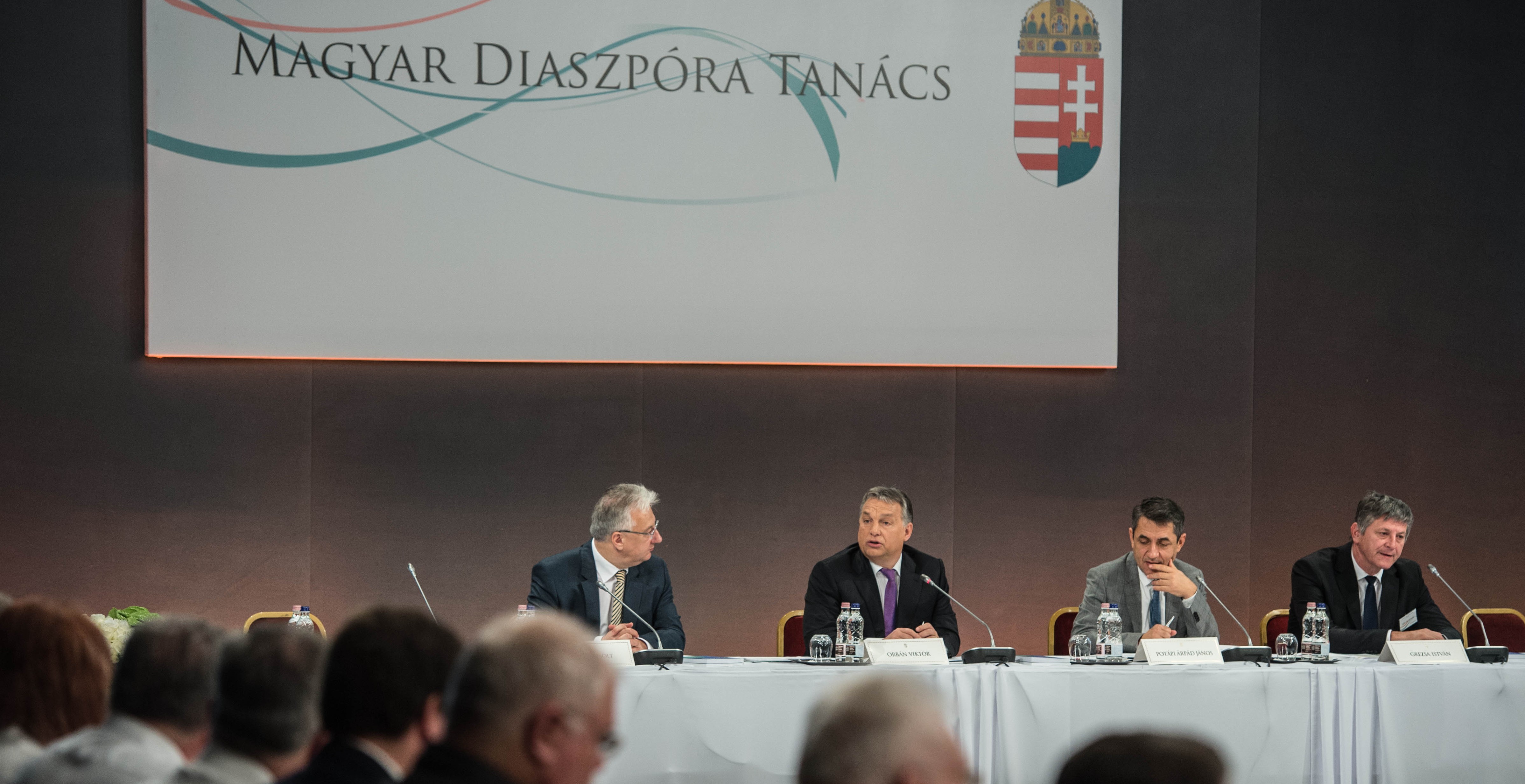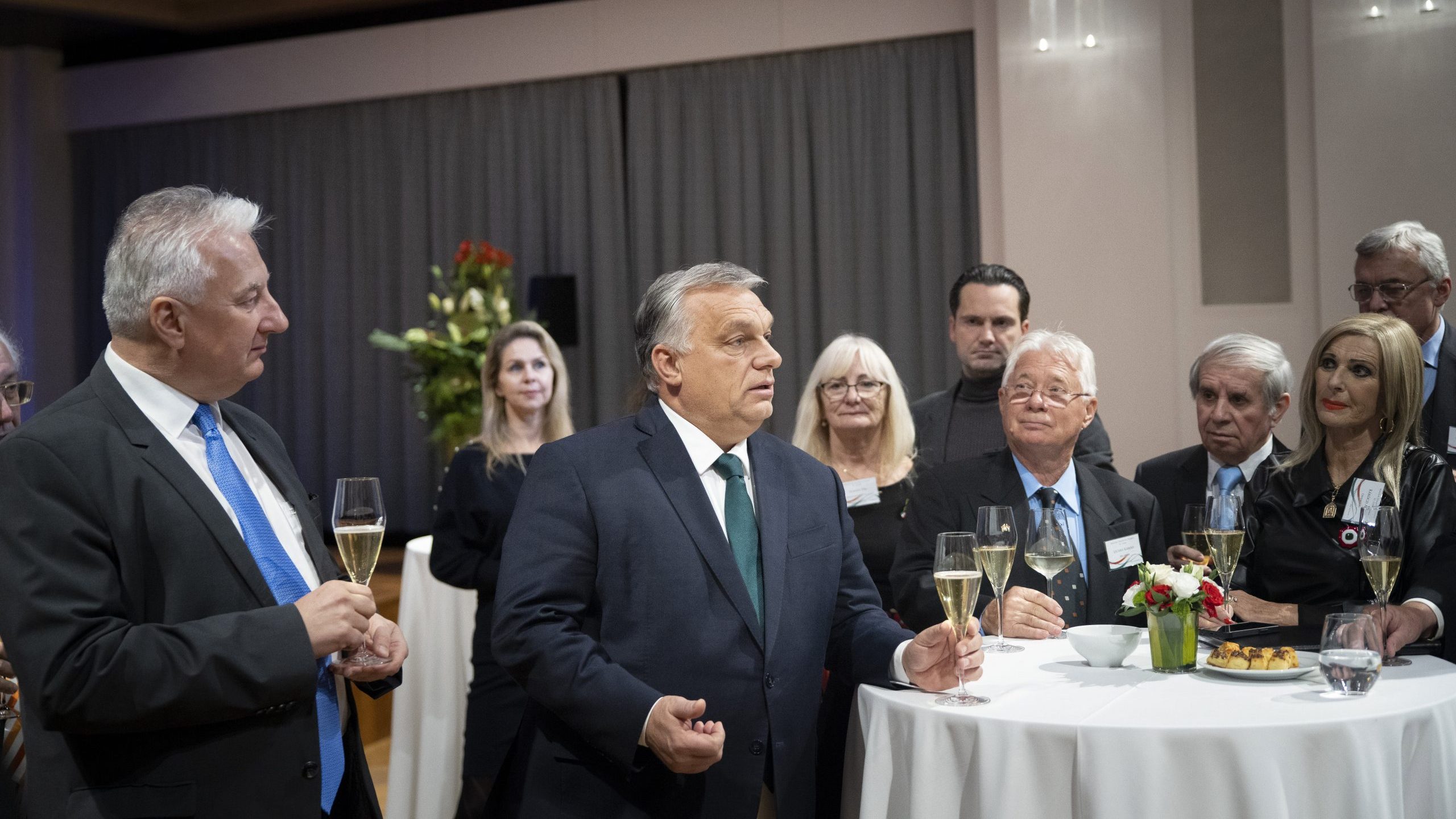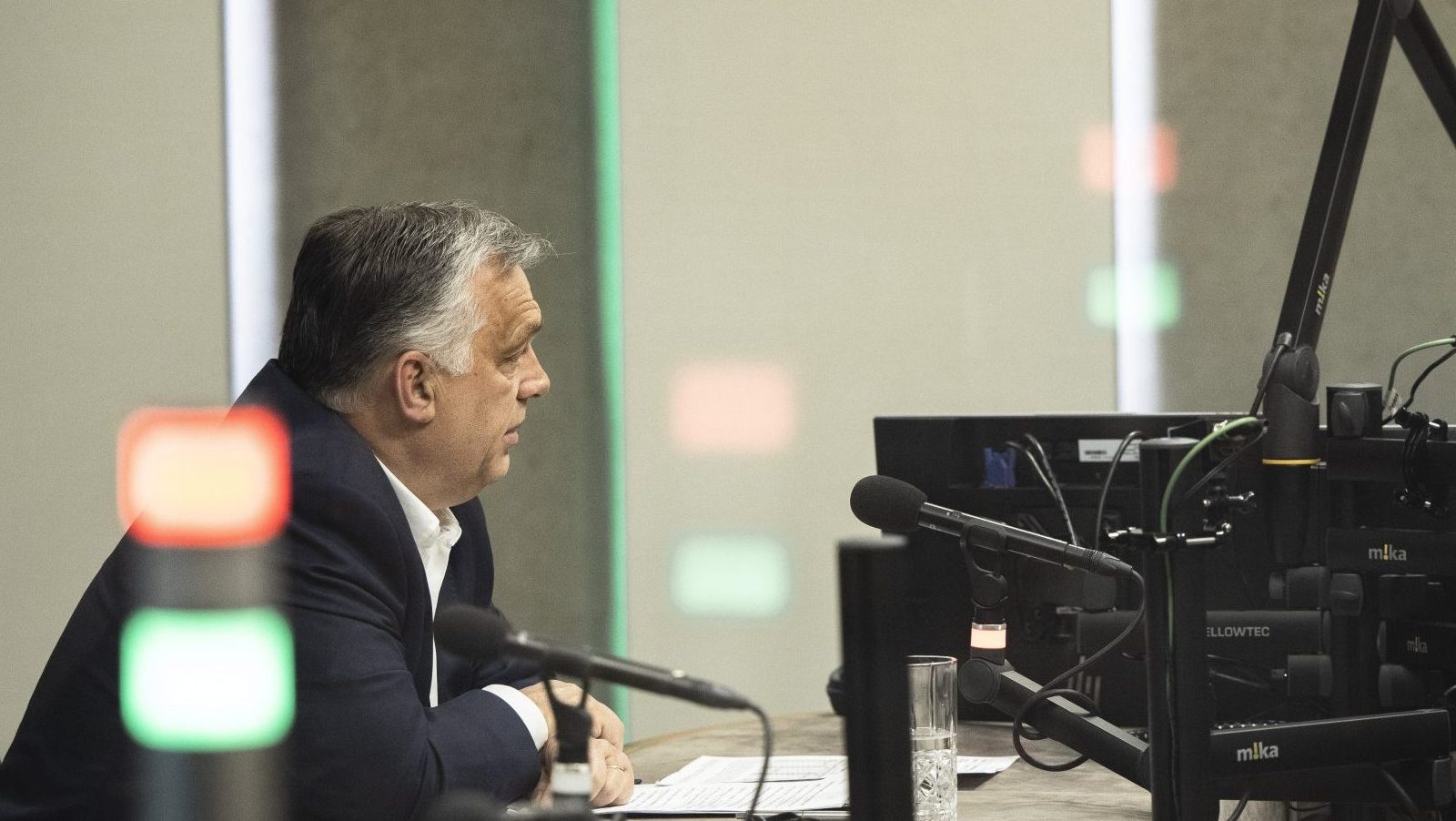
At the 5th meeting of the Hungarian Diaspora Council, the Prime Minister said that this proposal may be announced in Berlin before the end of this week, and while this was left out of the EU-Turkey agreement reached last week, in his view, “this secret background agreement” exists.
He pointed out that there will be enormous pressure on Hungary and the rest of the Visegrád countries due to the fact that they not only wish to bring these people into Europe, but also intend to immediately distribute them among the Member States as a “binding” decision. “We cannot accept this”, he stated.
Absurd coalition formed on issue of illegal immigration
In Mr. Orbán’s view, an absurd coalition has been formed on the issue of illegal immigration, which is comprised of a network of tens of thousands who are in the employ of human traffickers with business interests worth billions, teams of human rights activists paid by businesspeople, and some leading EU politicians.
“As a result, we transport into Europe the people who have either been compelled or have decided to leave the land” which was once their home, he stressed.
The Prime Minister highlighted that the problem is not that they cannot be detained, but that in fact “we ourselves” organise them, “send vehicles to collect them” and “suspend the laws” which would permit a reasonable migrant policy. This is modern-day mass migration, and the migrants are not merely entering Europe, but invading, he stated.
It clearly testifies to the absurdity of the situation, he argued, that the minority coming here demand the removal of the religious symbols of the native majority, because they offend their sensibilities. “If you visit Brussels too often, the mind simply boggles”, he said.
He further stressed that immigration is not a method for the solution of demographic problems; this is clearly “a policy of self-elimination”.
World economic order based on Western dominance is about to end
In his speech the Prime Minister also pointed out that “we are in the midst” of a reordering of world power, world economics and world politics; the dominance of the West is in continuous decline.
The shift in the focus of the world economy towards the East is not a temporary phenomenon, the era of western military dominance is also coming to an end, and “the global political trend based on the export of democracy and the export of human rights is likewise nearing its end”, he pointed out.
He added that Europe is facing even greater troubles than America; the European economy “is becoming increasingly clogged up”. He drew attention to the fact that if Central Europe were not part of the European Union, the community’s economy would be shrinking.
He confirmed that the Hungarian government does not support the idea of a “United States of Europe”; instead, it is in the camp which envisage the EU as an alliance of nations.
The Prime Minister repeatedly urged for fundamental reform of the EU, the necessity of which has truly been highlighted by the migrant crisis. He said that Central Europe, the economic engine of the continent, should identify common proposals for the reform of Europe.
“Instead of a liberal era, we would need a democratic era” because the people do not agree with the liberal politics currently prevailing in Europe, Mr. Orbán said.
Situation of the lower middle class is improving
Speaking about improving the situation of the lower middle class in Hungary, the Prime Minister pointed out that future governments will also have a great deal to do. At the same time he highlighted that the number of those in extreme poverty fell by 166,000 in 2014. He urged his audience not to underestimate this result – particularly in a stagnating European economic environment.
Mr. Orbán said that “we have to make do with what we have”, and this necessarily directs Hungary towards a work-based economy. If the Hungarians do not work, they are ruined both as a nation and as individuals; if they work, they have a chance to stay alive, he said, indicating that the number of people currently in employment stands at around 4.1–4.3 million. He said that we have not seen such high numbers of people working in Hungary since 1991; as a result of the reduction in household utility bills, inflation has practically dropped to zero; and real earnings increased by some 5 per cent last year – a trend which will also continue this year,.
The Prime Minister further told his audience that Hungary is doing well in the field of security and law and order, and is ranked better than the European average both in terms of low crime figures and the population’s perception of security.
He pointed out that Budapest is Hungary’s greatest economic potential and “greatest cultural creation”. In his words, the capital has recently gained in strength and significance, and its economic performance is spoken of in superlative terms. However, the capital city should not only be dynamic, but also safe, Mr. Orbán stressed.
The Prime Minister told his audience that scattered Hungarian communities form part of a successful, well-respected and important country which, whilst engaged in ongoing battles, has highly positive prospects. The time is coming to an end when the unpleasant feeling that being Hungarian will draw criticism, and it is gradually turning into well-deserved appreciation, he said.
Evaluating the work of the Government since 2010, Mr. Orbán also pointed out that the successful outcome of the country’s attempt to reform itself can no longer be called into question even in “high-up” places such as Brussels. In his view, the Hungarian solutions can be wholeheartedly recommended to all.


